Syrians continue to demand justice and accountability amidst ongoing violence
The 60th Session of the Human Rights Council
8 September – 8 October 2025
Item 4: Oral Update of the COI on the Syrian Arab Republic
23 September 2025
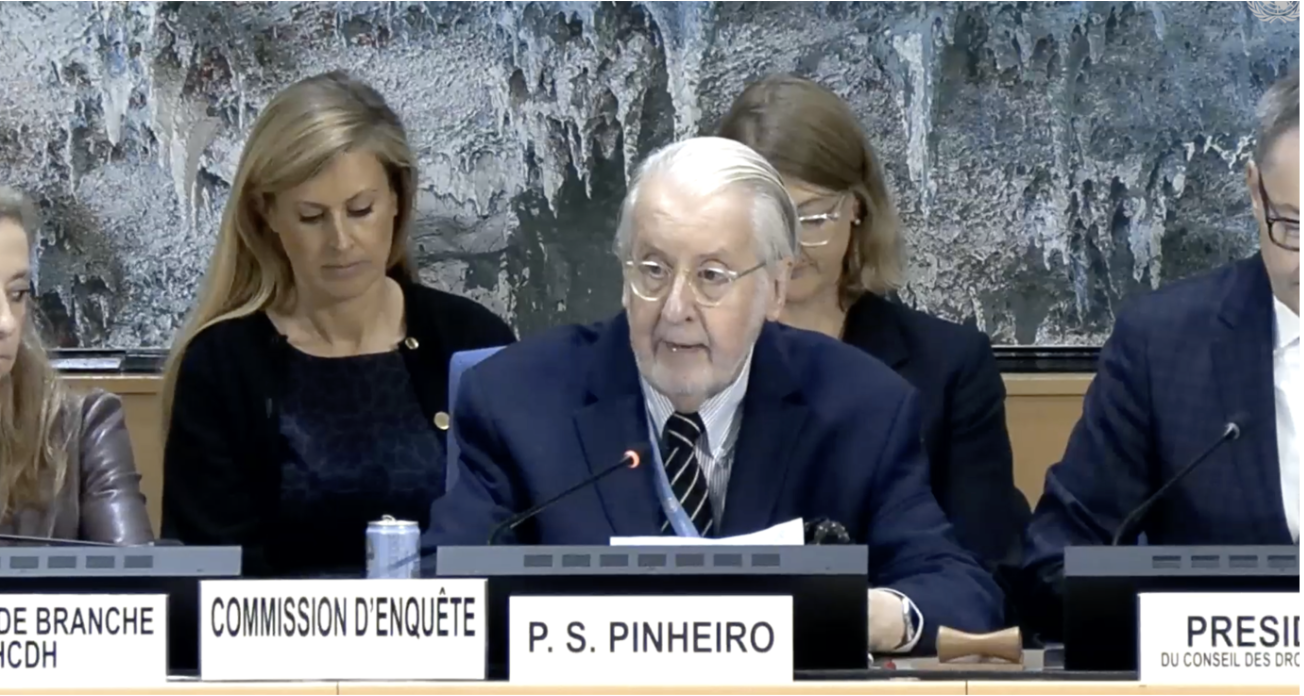
by Jennifer Kalushi / GICJ
Executive Summary
During the 60th session of Human Rights Council the Oral Update on the Commission of Inquiry (COI) on the Syrian Arab Republic was held on 27 June 2025. Paulo Sérgio Pinheiro, Chair of the COI, reported that grave violations continue to persist nine months after the fall of the dictatorship. Chair Paulo Sérgio Pinheiro highlighted the widespread killings, abductions, sexual violence, and the July violence in Suwayda, which left hundreds dead and thousands displaced. He also condemned Israeli airstrikes and the occupation beyond the 1974 separation line, urging urgent reforms, including a moratorium on the death penalty and victim-centred transitional justice.
Syria cited progress with new commissions, refugee returns, and planned elections, while warning against external interference. States were divided: the UK and Canada demanded accountability, Qatar and Jordan stressed unity and reconstruction, and civil society denounced massacres, systematic abuses, and gender-based violence.
Geneva International Centre for Justice (GICJ) recognises recent steps taken by the Syrian Arab Republic in establishing investigative committees regarding the coastal violence and in creating a commission on transitional justice and missing persons, but stresses that genuine accountability and reparations remain indispensable. We call for sustained scrutiny, victim inclusion, and support for inclusive institutions to restore rights and dignity in Syria.
Background
In December 2024, President Bashar al-Assad fled to Russia after more than two decades in power. The fall of his regime marked a turning point in Syria’s 14-year conflict but did not bring stability. A new transitional government was declared by the Hayat Tahrir al-Sham (HTS). Although HTS formally dissolved in early 2025, many of its members retained key positions in this new leadership. In April 2025, interim president Ahmed al-Sharaa announced a new government and a constitutional declaration intended to guide the country for five years until formal elections are held [1].
The transitional government has a cabinet of 25 ministers, including women and representatives of minority groups, a first in Syrian politics. It pledged reforms on transitional justice, rebuilding institutions, and preparing a new constitution. However, critics argue that the new government concentrates power in the executive and marginalises major actors such as the Syrian Democratic Forces (SDF), who remain excluded from central decision-making [2].
Despite the political transition, violence continues. Intercommunal clashes, particularly in Suwayda and along the coast, have killed thousands, with minorities like the Druze and Alawites facing targeted attacks. Human rights groups report abductions, sexual violence, and enforced disappearances. Israel has intensified its airstrikes in southern Syria and maintains its occupation beyond the 1974 separation line, displacing civilians and deepening regional instability [2].
The humanitarian situation remains dire with over 16 million Syrians requiring aid and more than 6 million remain refugees in neighbouring states. Internal displacement persists, with limited access to basic services. Reconstruction needs are acute, but international support is constrained by security concerns and political uncertainty [3].
International reactions are mixed. The EU and UK have cautiously eased some sanctions in recognition of constitutional reforms and commitments to elections, while maintaining others linked to past repression. The United States has halved its troop presence and kept most sanctions in place, conditioning relief on the exclusion of foreign fighters from leadership roles. Regional actors such as Türkiye, Jordan, and Qatar emphasised national unity but remained wary of Kurdish influence and Israeli involvement [4].
The Independent International Commission of Inquiry (COI) on the Syrian Arab Republic
The Independent International Commission of Inquiry on the Syrian Arab Republic (COI) was established by the UN Human Rights Council in August 2011 through resolution S-17/1. Its mandate is to investigate all alleged violations of international human rights law since the beginning of the Syrian conflict in March 2011, and, where possible, to identify those responsible with a view to ensuring accountability.
The Commission is composed of independent experts appointed by the President of the Human Rights Council. Over the years, it has been chaired by Mr. Paulo Sérgio Pinheiro.
Due to the Syrian government’s refusal to grant it access, the COI has conducted its investigations primarily through remote monitoring methods, including over 8,000 interviews with victims, witnesses, and other sources, analysis of photographs, satellite imagery, and medical records. It has published more than 25 reports and updates detailing patterns of abuses, including war crimes and crimes against humanity by all parties to the conflict.
The Commission’s work has highlighted:
- Indiscriminate attacks on civilians and civilian infrastructure, including by chemical weapons.
- Torture, sexual violence, and enforced disappearances in detention facilities.
- Violations committed by State and non-State actors, including armed groups and foreign militaries.
- The urgent need for accountability, reparations for victims, and transitional justice mechanisms.
The Human Rights Council has regularly renewed the COI’s mandate, most recently in April 2025 by consensus, underlining the continued importance of its work as Syria enters a fragile transitional phase [5].
At the 60th session of the Human Rights Council, the COI presented its latest oral update under Item 4 on 23 September 2025. The COI’s presence at HRC60 reaffirmed the Council’s consensus mandate renewal in April 2025 and underscored the body’s central role in documenting abuses and advancing accountability as Syria navigates its fragile transition.
Summary of the Oral Update of the Commission of Inquiry on the Syrian Arab Republic
Opening Statement by the Commission of Enquiry

The oral update by the COI on Syria, opened the dialogue by recalling that nine months after the fall of the dictatorship, outbreaks of violence persisted and continued to erode hopes for a rights-respecting future. He urged enhanced respect and protection of human rights and referred back to the Commission’s latest recommendations as reflecting these concerns. He noted assurances from the Ministry of Justice that arrests are being conducted under judicial oversight and that detainees have access to family members and lawyers. The COI reiterated its long-standing recommendation for a moratorium on the death penalty as a step towards full abolition, and welcomed steps to establish a national authority on missing persons and appointments to a transitional justice authority, stressing that families of the missing must be central participants in all processes.
The COI underlined that Syria’s future depends on integrating all regions and communities within a unified, secure, and rights-respecting state. While the country’s dynamics have shifted from the mass and systematic violations under the Assad regime, human rights violations continue. The COI recalled the March coastal violence, where widespread and systematic killings of men, women, and children were recorded within days, amounting to war crimes. The Commission demanded compensation, protection of victims and accountability. The COI’s urgent recommendations include strengthening professional, well-trained law enforcement, addressing ongoing killings, abductions and property confiscations across different areas, and rebuilding trust between authorities and communities.
The Commission warned that mid-July saw another round of inter-communal violence, where in Suwayda, hundreds were killed or injured, including being subject to executions and degrading treatment. The security of the environment was strained by Israeli airstrikes, including near Damascus and on government buildings, with significant destruction and civilian casualties. In the south, the occupation beyond the 1974 separation line continued, displacing residents and arbitrarily detaining Syrian nationals. All these actions continue to destabilise the region. The COI also flagged stalled implementation of the 10 March Agreement between interim authorities and the SDF, warning that violent rhetoric could undermine the status quo and urged for de-escalation and dialogue. More than 220,000 people were estimated to be internally displaced due to violence, alongside abductions and gender-based violence, including sexual assault prior to release and forced marriages in many cases of missing women, which local police reportedly failed to investigate.
The COI noted returning migration with 1 million refugees and 2 million others coming back to their homes in December. The Commission welcomed the easing of certain sanctions by the UN and the US, opening space for reconstruction, while stressing that only 18% of the 2025 humanitarian appeal had been funded so far. The Commission concluded by emphasising Syria’s continued calls for justice, accountability, and inclusion. Furthermore, the Commission appealed to Member States to support their legitimate aspirations and assist the interim authorities.
Statement of the Concerned Country
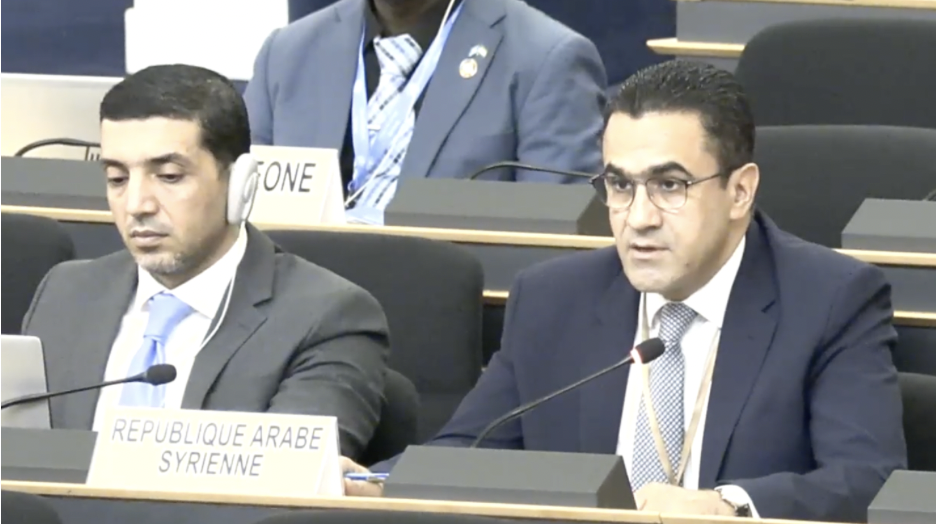
The delegate of the Syrian Arab Republic thanked the COI for the update and called the overthrow of the former regime a ‘historic milestone long sought by Syrians,’ while acknowledging mistakes and setbacks typical of a complex transitional phase compounded by the wounds of the past. Immediate priorities included transitional justice, searches for the missing, the return of refugees and IDPs, restructuring security and military sectors, and lifting sanctions. The delegation stressed a balanced approach, condemning the coastal violence and the events in Suwayda as unacceptable. The Syrian Arab Republic stated that measures had been taken to investigate incidents and consolidate national reconciliation, granting access to investigators without restrictions. The country condemned violations to Syrian sovereignty by Israel, announced parliamentary elections and work on a new constitution, and pledged continued engagement with UN human rights mechanisms. Syria rejected partition/federalisation, reaffirming national unity.
Country and Groups Statements
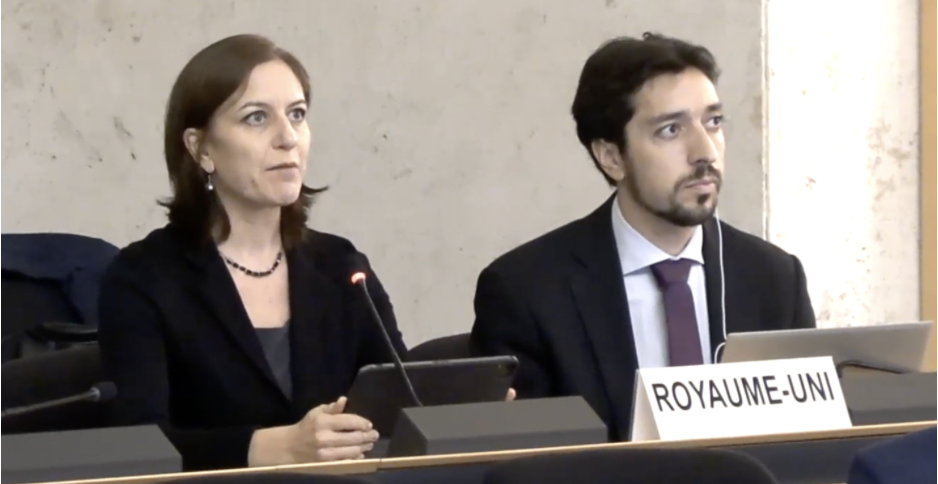
The delegate of the United Kingdom welcomed the April 2025 renewal of the COI mandate by consensus, appreciated facilitation of this by Syria, and welcomed positive steps including investigations into coastal violence and the establishment of commissions on transitional justice and missing persons. , the UK called the Suwayda violence ‘horrific,’ seen as a threat to peace, stability and territorial integrity. The UK urged action against perpetrators and stressed that justice must serve all Syrians, irrespective of religion or ethnicity. The UK encouraged further cooperation to complement national efforts and reaffirmed respect for Syria’s independence and sovereign integrity.
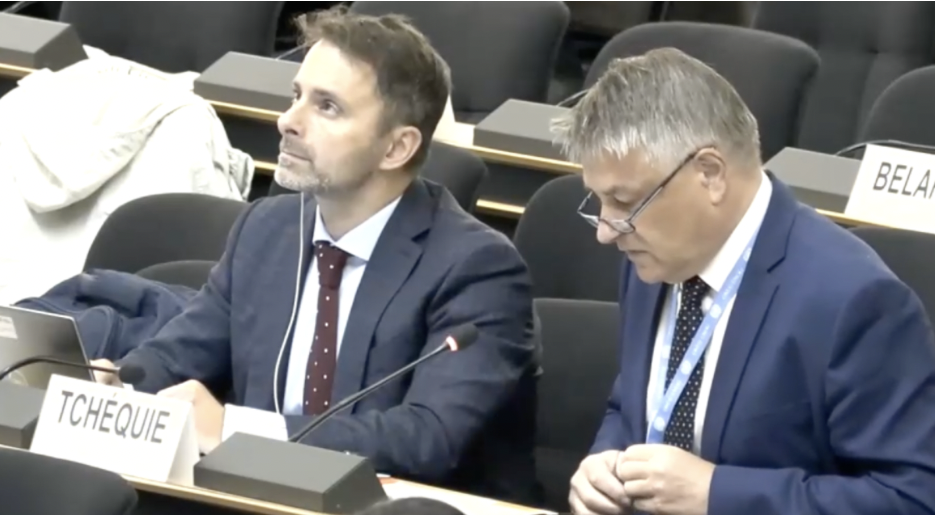
The delegate of Czechia welcomed the interim authorities’ commitment to protect rights without discrimination and to pursue national accountability mechanisms.
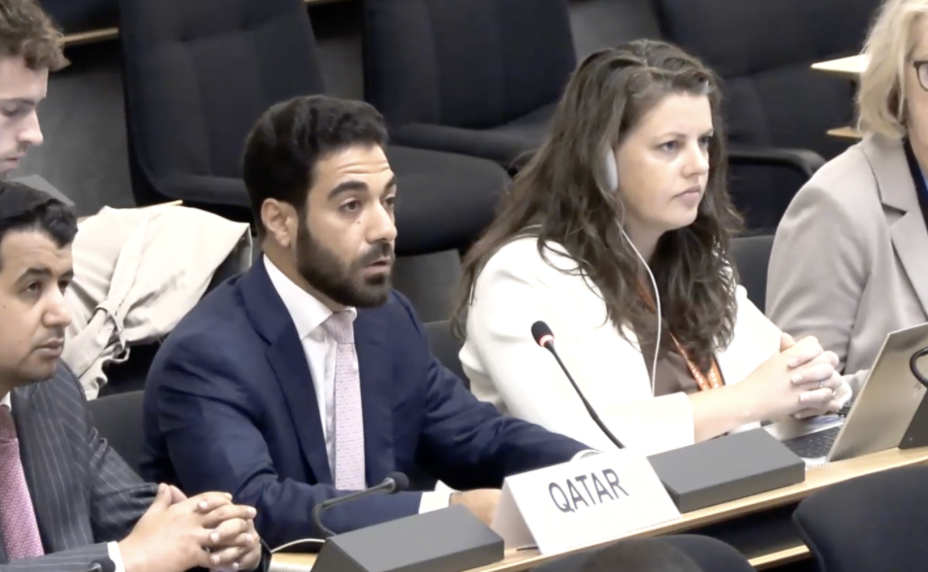
The delegate of Qatar described Syria at a critical juncture after 14 years of destruction and violations. He stressed national unity and institution-building; supported an inclusive, Syrian-owned political dialogue; recognised steps toward transitional justice and cooperation with the COI as positive; welcomed the roadmap agreed upon by Syria, Jordan and the United States to address the Suwayda crisis. Qatar urged all parties to refrain from escalation and called for development and humanitarian assistance, the lifting of sanctions, and an end to Israeli violations, including the occupation of Syrian soil.
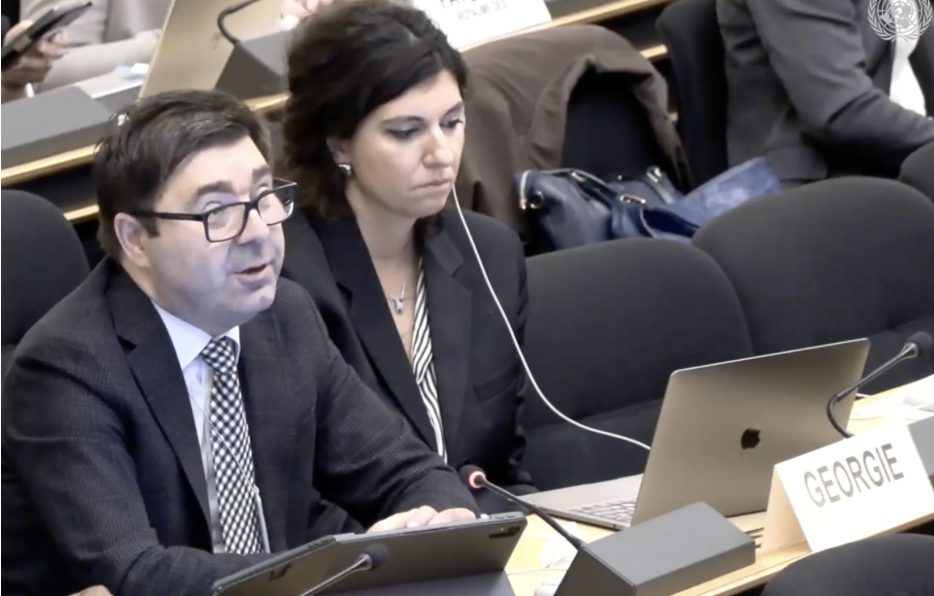
The delegate of Georgia emphasised the importance of achieving a sustainable, peaceful and inclusive future for Syrians and encouraged relevant steps.
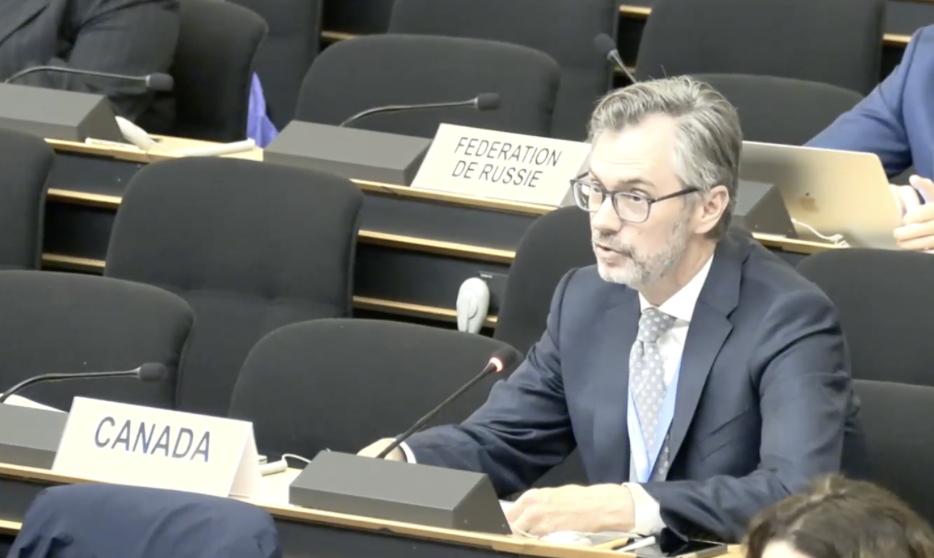
The delegate of Canada underlined the humanitarian crisis and ongoing violence in Syria. He urged an inclusive political transition that prioritises human rights, accountability and justice.
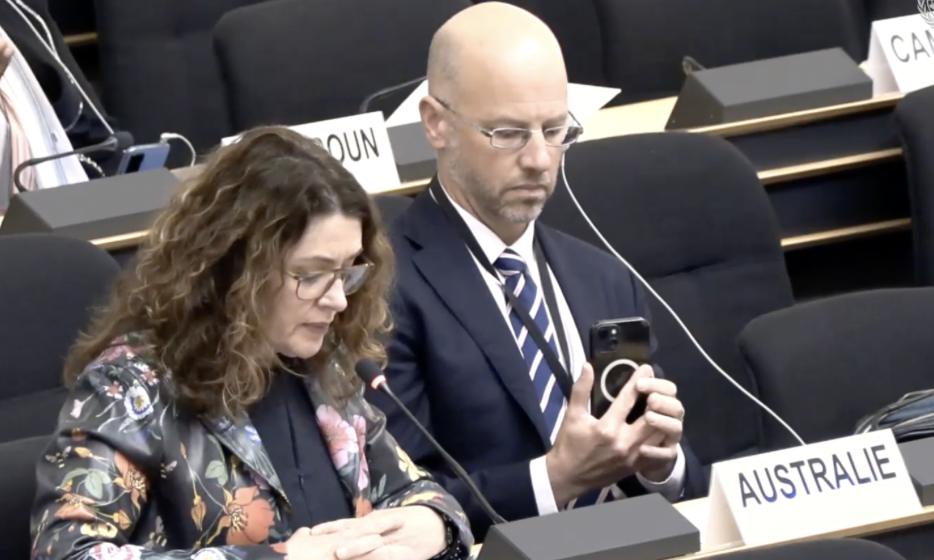
The delegate of Australia expressed concern over ongoing violence against civilians and urged all parties to prioritise dialogue to protect all Syrians.
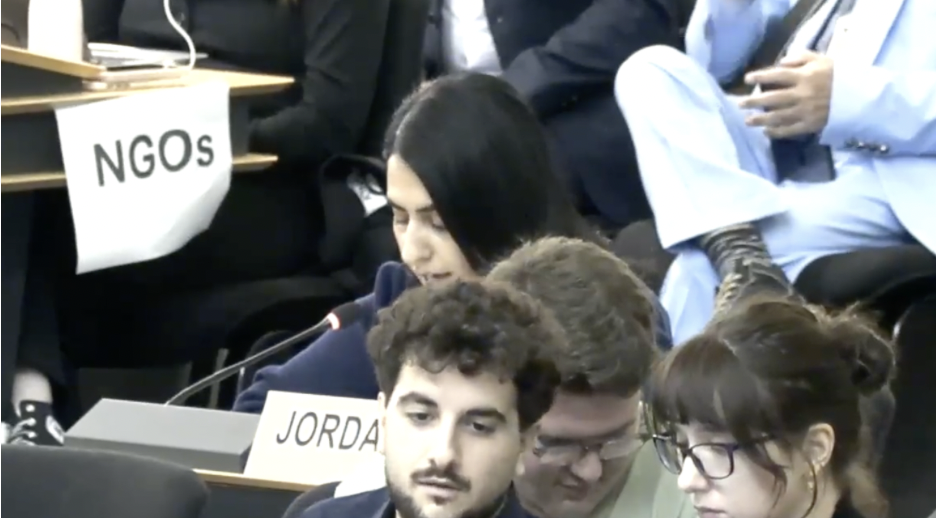
The delegate of Jordan thanked the Independent International Commission of Inquiry on Syria for their work and efforts. She stressed support for the Syrian Arab Republic and its reconstruction efforts. She called for the safeguard of Syria’s security, unity, stability and safety of citizens. The delegate condemned Israeli attacks on Syrian territory by calling them ‘inadmissible’, as Syrian unity and stability are fundamental for regional peace.
Statements by NGOs and Civil Society
A multitude of civil society actors intervened during the dialogue, underscoring the urgency of the human rights situation in Syria. The events in Suwayda in July were repeatedly cited as evidence that the crisis remains acute. NGOs described massacres targeting minority communities, stressing the need to guarantee the protection of minorities.
Some speakers also criticised the declarations of intent by the transitional government, noting that announced political and institutional reforms had so far failed to meet the expectations of the Syrian people or to provide an adequate response to the protection and promotion of their rights. Against the backdrop of ongoing occupation and foreign interference, they emphasised that the reconstruction of a peaceful Syria requires the establishment of inclusive transitional political structures and a credible justice process.
Civil society representatives drew attention to the situation in Suwayda, where basic necessities are scarce, casualties are estimated to be over 2000, and civilians have been subject to abductions and rape. They denounced these crimes as being part of the systematic policies used to subjugate entire communities and demanded accountability for perpetrators. NGOs called for the urgent attention of the Council, insisting that survivors, families of victims, affected communities and civil society must be placed at the centre of all transitional processes.
They concluded by stressing that transitional justice must be victim-centred, transparent, inclusive and comprehensive. NGOs urged the Council to maintain its focus on Syria, to ensure civilian protection, and to hold all perpetrators accountable.
Concluding remarks
The Oral Update and the interventions of states and other actors highlighted two realities in Syria. On the one hand, progressive steps were acknowledged, such as investigations into the coastal violence, the establishment of commissions on transitional justice and missing persons, and the development of a roadmap for the south. On the other hand, these measures continue to coexist with ongoing grave violations, such as killings, abductions, gender-based violence, enforced disappearances, and property confiscations; as well as, heightened external tensions and interferences. The mandate of the COI was renewed by consensus in April 2025, reflecting broad international agreement on the urgency of maintaining close scrutiny of the situation in Syria.
Position of Geneva International Centre for Justice
Geneva International Centre for Justice (GICJ) expresses its concern over the ongoing violations in the Syrian Arab Republic, as well as the degrading treatment reported during the July events in Suwayda. GICJ takes note of the progress, with the establishment of investigative committees into the coastal violence, the creation of commissions on transitional justice and missing persons, and the adoption of a roadmap for southern Syria. However, GICJ stresses that genuine accountability and reparations for victims remain indispensable and need to be implemented.
We urge the Council to maintain rigorous scrutiny, to support the full inclusion of families of the disappeared in decision-making processes, and to reinforce the development of professionalised law enforcement and judicial mechanisms in line with international standards. GICJ also calls on states to bridge the funding gap of the 2025 Humanitarian Appeal and to assist in building inclusive institutions capable of restoring trust between authorities and communities. Only by grounding Syria’s future on rights, justice, and dignity can a sustainable and peaceful transition be achieved.
Bibliography
[1] Loft, P. (2025). Syria: What is the situation five months after Assad’s fall? UK Parliament. https://commonslibrary.parliament.uk/syria-what-is-the-situation-five-months-after-assads-fall/
[2] Drevon, J., & Hawach, N. (2025, April 25). What Lies in Store for Syria as a New Government Takes Power? | International Crisis Group.
https://www.crisisgroup.org/middle-east-north-africa/east-mediterranean-mena/syria/what-lies-store-syria-new-government-takes-power
[3] The Center for Preventive Action. (2025, May 14). Conflict in Syria. Global Conflict Tracker. https://cfr.org/global-conflict-tracker/conflict/conflict-syria
[4] Syria swears in new transitional government months after Assad’s removal. (2025, March 31). CNN.
https://www.cnn.com/2025/03/30/middleeast/syria-new-transitional-government-intl-hnk
[5] Independent International Commission of Inquiry on the Syrian Arab Republic. (2018, October 1). OHCHR.
https://www.ohchr.org/en/hr-bodies/hrc/iici-syria/independent-international-commission




